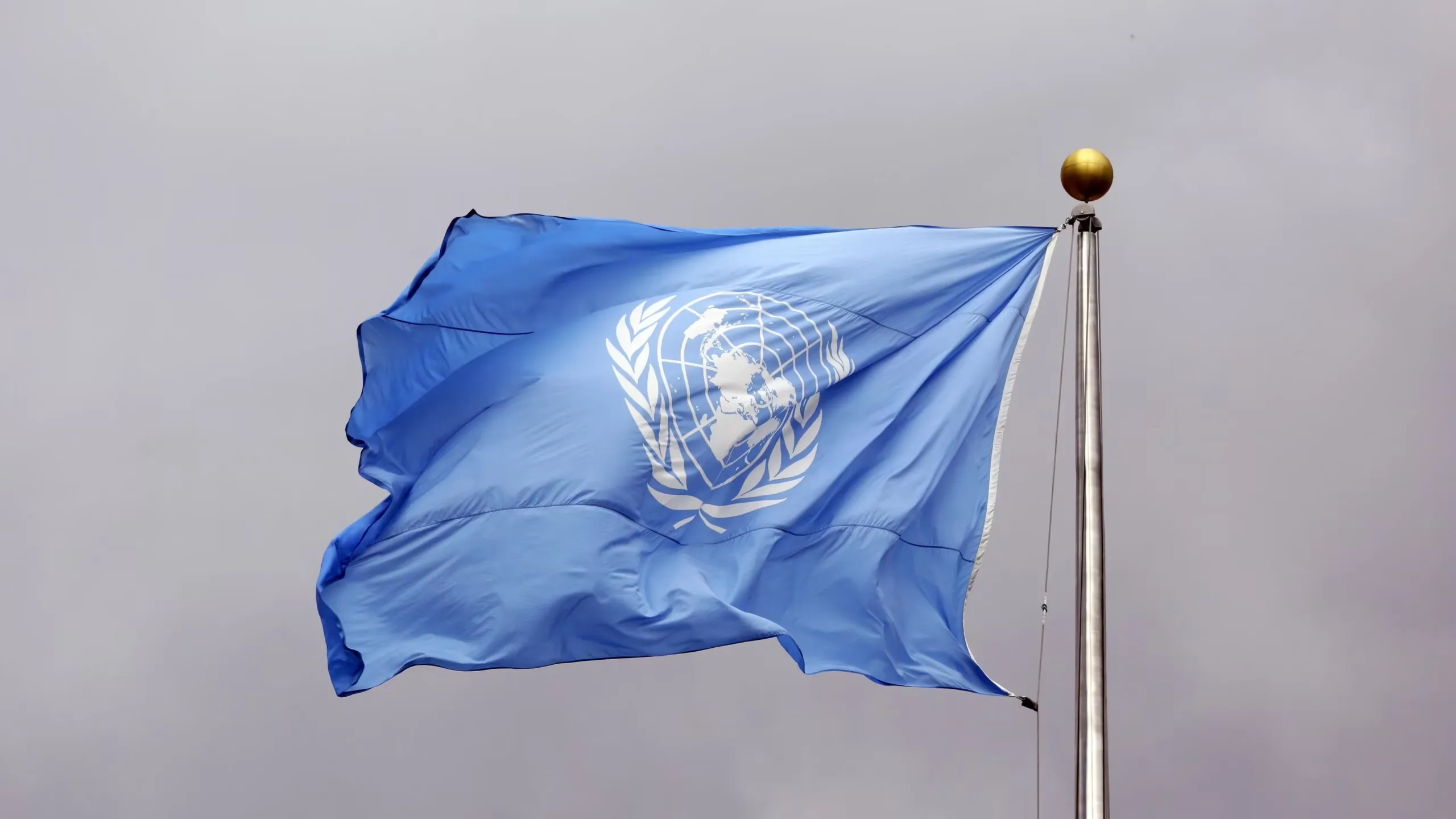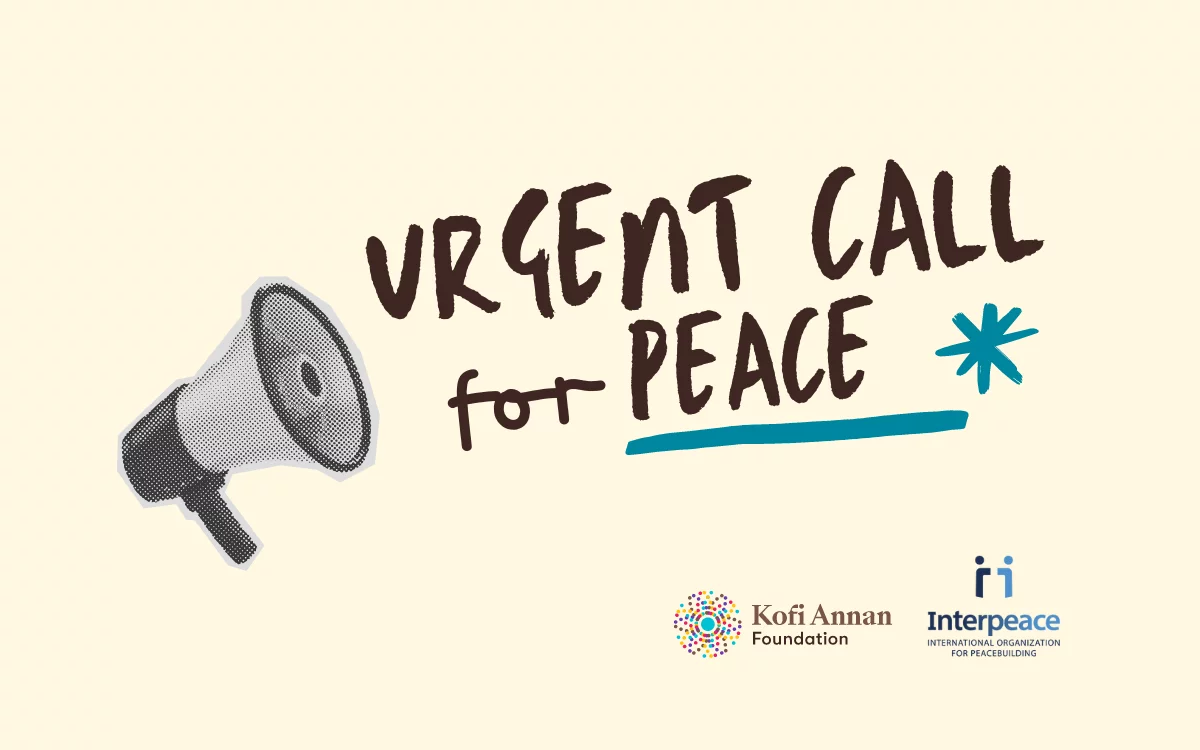Calling a Peace Emergency

Joint Op-ed between the Kofi Annan Foundation and Interpeace
By Corinne Momal-Vanian & Itonde Kakoma
We live -again- in a time of war. And we seem resigned to it. Levels of violent conflict are higher than at any time since the end of the Second World War.[1] Global defense spending is the highest-ever recorded. Military expenditure increased for the ninth consecutive year in 2023, reaching $2443 billion.[2]
While states may be prioritizing military strength to address volatile geopolitical and security dynamics, their efforts have failed to arrest violent conflicts, which are growing not just in numbers, but in severity and length. War is now waged in a way that exacerbates civilian harm, with civilian deaths rising rapidly.[3] There are more casualties today from fighting in Darfur than there were 20 years ago. The daily death rate in Gaza has surpassed any other major conflict in this century.[4]
And yet we know that violent responses most often beget new forms of violence and fuel cycles of conflict over generations. Any return on investment for war-driven approaches will never outweigh the immeasurable cost of violent conflict in terms of the loss of lives, livelihoods and infrastructure and wider social harms.
According to the 2023 Global Peace Index, the impact of violence on the global economy amounted to $17.5 trillion in 2022. Research has shown on the other hand that each dollar invested in peacebuilding will lead to a $16 decline in the cost of conflict.[5] If we truly want to reverse current trends and advance peace, we must invest urgently in sustaining and expanding peacemaking and peacebuilding work at a scale that has not been attempted in decades.
By “peace,” we don’t just mean the absence of war. Changing how the world invests in peace requires a total rethink of how we define it. We see peace as a state where social, economic, and political relationships are free from violence and coercion, allowing people to envision a future without fear or injustice and with security and dignity. This is a complex endeavor that requires resources, hard work and expertise.
Unprecedented times require unprecedented action. When world leaders gather at the Summit of the Future in New York later this month, they must declare their determination to restore and strengthen dialogue and cooperation against all odds. They must commit to investing massively in peace as the best way to ensure stability and security for their people. And we must hold them accountable for every life lost in war, every livelihood destroyed, every hospital or school blown up, every child starved in man-made famines.
The current narrative presents war as inevitable. We must counter it by highlighting the numerous examples of successful actions for the prevention of conflicts, the restoration and consolidation of peace. We know that peace work actually works. We see it every day.
It works when we act beyond short-term projects to deliver solutions that span current and future generations. It works when peace actors cooperate and join forces rather than compete for shrinking resources. It works when women are at the center of all peace action and have access to decision-making and when young people drive the solutions for their problems.
There will be no future, no future generations, no future for the planet, without peace. We are calling a Peace Emergency.

This article originally appeared in Le Temps, in French, on 20 September 2024, authored by Corinne Momal-Vanian and Itonde Kakoma.
[1]With Highest Number of Violent Conflicts Since Second World War, United Nations Must Rethink Efforts to Achieve, Sustain Peace, Speakers Tell Security Council, United Nations, Meetings Coverage, Security Council 9250th Meeting, SC/15184, 26 January 2023
[2] https://www.sipri.org/media/press-release/2024/global-military-spending-surges-amid-war-rising-tensions-and-insecurity
[3] See in particular the Explosive Violence Monitor 2023, Action on Armed Violence.
[4] https://www.oxfam.org/en/press-releases/daily-death-rate-gaza-higher-any-other-major-21st-century-conflict-oxfam
[5] Measuring peacebuilding cost effectiveness, Institute for Economics and Peace, March 2017
